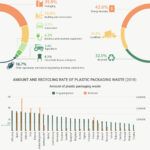MEPs want to modernise the EU’s airspace management to make it more efficient and greener. Learn more by watching this video.
Updating Single European Sky rules should help the aviation sector become more efficient, ensuring shorter flights through more direct routes and thus lowering greenhouse gas emissions, say MEPs.
The Single European Sky initiative was launched in 1999, in a period marked by a large increase in flights and growing delays that highlighted the need for better coordination.
MEPs want the rules to be reformed to make EU airspace less fragmented and improve air traffic management. This would increase safety and efficiency, lower costs and benefit the environment.
Currently, airlines may not fly directly to the landing point. They may want to avoid flying over states with higher charges, avoid military zones or take a longer route to avoid the weather. That can mean longer flights and more emissions. Fragmentation can also cause delays due to less-than-optimal coordination.
MEPs say airspace management rules need to be further developed and adapted to evolving markets, the new digital environment and the European Green Deal. They are pushing for new rules that would help achieve up to a 10% reduction in greenhouse gas emissions, by avoiding longer routes and promoting cleaner technologies.
They also want to make European airspace more competitive and support choosing air-traffic service providers and other air navigation services such as communication and meteorological services through competitive tenders.
Background
Current Single European Sky rules date from 2009. The European Commission proposed a revision in 2013 that was adopted by Parliament in 2014. Following the failure of the Council to reachan agreement, the Commission proposed an upgrade in line with the European Green Deal in 2020.
On 17 June 2021, Parliament’s transport and tourism committee updated their negotiating mandate on the Single European Sky reform and adopted their position on expanding the mandate of the European Union Aviation Safety Agency to act as a performance review body. After the latter position was announced during the July plenary session, MEPs are ready for negotiations with the Council.







Leave a Reply